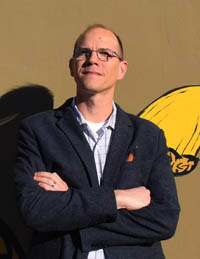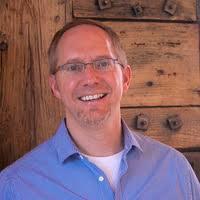Researchers from UC Santa Cruz received a subaward on the newly announced National Science Foundation (NSF) Center for Braiding Indigenous Knowledges and Science, a five-year, $30 million international NSF Science and Technology Center based at the University of Massachusetts Amherst. The center will focus on connecting Indigenous knowledges with mainstream “Western” sciences to address complex, evolving challenges brought on by climate change. Those challenges include impacts to land, water, and plant and animal life; the danger posed to irreplaceable archaeological sites, sacred places, and cultural heritage; and changing food systems, all of which disproportionately affect Indigenous communities.
The center will take a transdisciplinary approach to these issues, using community-based research to conduct place-based studies and projects in partnership with 57 Indigenous communities, 29 universities, two tribal colleges, five NGOs, two national museums, and two industry partners. These efforts will be organized around eight regional “hubs” across the U.S., Canada, Aotearoa New Zealand, and Australia. And eight thematic working groups will distill key lessons to produce cross-cultural research methodologies and ethics guidelines. The center’s team of over 50 affiliated scientists includes more than 30 of the world’s leading Indigenous social scientists, natural scientists, and environmental scientists.
As part of UC Santa Cruz’s more than $500,000 subaward on the project, Associate Professor of Anthropology Tsim Schneider—an archaeologist and citizen of the Federated Indians of Graton Rancheria who studies the heritage and resilience of California Indian peoples—will co-direct the new center’s “Relationality” working group. Schneider and the team will focus on best practices for problem-solving approaches that prioritize Native and Indigenous communities' diverse knowledges without being extractive or transactional.
“Relationality is one of the things that stands to make this center’s work so impactful,” Schneider said. “It foregrounds the role and value of sustained relationship-building with communities who, for the most part, have been excluded from the decision-making about when and how their cultural and ecological knowledge can be accessed and used and by whom, as well as about who benefits from the work.”
Meanwhile, UCSC Associate Professor of Anthropology Jon Daehnke will serve as co-director of the new center’s Pacific Northwest Regional Hub. Daehnke’s prior work includes an ethnography produced in collaboration with the Chinook Indian Nation and archaeological research of Indigenous peoples’ connection to the land near the Columbia River and Hart Mountain in Oregon. Daehnke will help to administer sub-awards for field-work case-studies and other research in the region and coordinate among projects so that they build upon each other’s work and lead to meaningful long-term research networks, collaborations, and partnerships.
“The key to all of this will be funding projects that truly and fully embrace collaboration, that center and are guided by Indigenous concerns, knowledge, and priorities, and which already have a track record demonstrating that they can put their collaborative projects into practice,” Daehnke said.
At a national level, the new center also has an important educational mission. Undergraduate, graduate, and community research assistantships and internships will be available in all regional hubs and working groups. The center will also develop formal curriculum materials for college and K-12 levels and informal camps, after-school programs, and museum exhibits. Additional educational efforts will include trainings and workshops for government agencies and museum scientists and a publicly-available knowledge base to share lessons from the center’s work.
Sonya Atalay, director of the center and provost professor of anthropology at the University of Massachusetts Amherst, said that the project ultimately aims to provide mindful, ethical methods for integrating Indigenous and Western sciences and a future workforce of Indigenous and non-Indigenous researchers who are skilled at applying these approaches to address pressing climate and environmental challenges. She hopes this work “can help lead to healthier Indigenous futures and new possibilities for science.”
More details are available in a press release from the University of Massachusetts Amherst and on the new center’s website.




